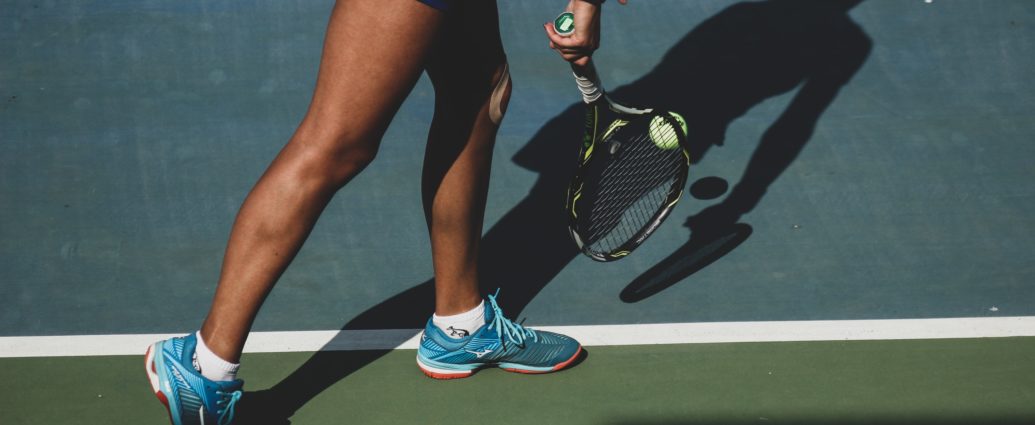Claire Thomson
Over the past two years, the sporting world has fallen victim to controversy after controversy as the pandemic created new challenges and barriers to be crossed and athletes began to prioritise themselves and their wellbeing over the notion of pleasing others.
World number one men’s tennis player Novak Djokovic hits the headlines after having his visa to enter Australia revoked suddenly on his arrival in Melbourne for the Australian Open, at the time of heavy criticism over a vaccine exemption.
Following the announcement that the favourite for the tournament and previous nine-time winner had been granted a medical exemption to play by two independent medical panels organised by Tennis Australia, the governing body for the event, and Victoria state, frustration had risen throughout the country. Australia has faced some of the toughest and strictest Covid-19 regulations in the world, with many still being denied the opportunity to visit friends and family in other states or internationally.
Australian entry requirements
Whilst airborne from Dubai, it was revealed that the tennis star’s visa had been revoked. Australia’s Prime Minister Scott Morrison spoke out against the athlete, saying that he will be on the “next plane home” if he cannot provide “acceptable proof” that his exemption is legitimate. He also highlighted the fact Djokovic was not being singled out, nor was in a higher position than anyone else entering the country.
Border officials denied Djokovic official entry into the country after he “failed to provide appropriate evidence”. He was then taken to a government detention hotel in the Melbourne suburb of Carlton, where he remained until his court hearing to appeal visa cancellation on Monday 10.
In a statement by the Australian Border Force, it was stated that: “Non-citizens who do not hold a valid visa on entry or who have had their visa cancelled will be detained and removed from Australia”.
Detainment
On January 7 an uproar formed about the conditions and circumstances under which the Serb was being detained, with his mother claiming that he was being “treated like a prisoner”. This has since created a further discussion surrounding immigration laws, refugees and asylum seekers, and the privileges of world-class athletes. In response to the demonstrations from fans against Djokovic’s detainment, Australia Home Affairs Minister Karen Andrews re-emphasised the previous notion that Djokovic was “free to leave any time”, and was not in fact being detained.
Vaccination status and positive tests
Throughout the pandemic, Djokovic has never openly stated his opposition to vaccination, but has been under fire in the media for flaunting the Covid-19 restrictions on several occasions– much to the frustration of his opponents. Consequently, it came as no surprise to many of the public when it was revealed on January 8 in court documents submitted by his lawyers, that Djokovic’s visa and medical exemption was granted on the basis that he had tested positive for the virus, a second time, on 16 December 2021. However, to add to the controversy, the World No1 attended an event that same day in Belgrade. It is unclear whether he was aware that he had Covid when attending the event. Regardless, he was still seen maskless in photographs from the event.
Court hearing
During the court hearing on Monday 10 January, lawyers representing the Australian state presented their case, while Nick Wood fought for Djokovic’s deportation to be suppressed and his visa reinstated. It was stated that he had already declared that he could not be vaccinated for medical reasons and quoted guidance, which highlights the deferment of vaccination for six months after a confirmed Covid-19 infection through a PCR test. Medical exemption documents from Tennis Australia and a panel of experts established by Victoria’s state government, were also produced.
Judge Anthony Kelly expressed his sympathy towards the situation and ordered Djokovic’s release after the government acknowledged in court that he was not given enough advanced notice following the cancellation of his visa.
Further announcements
Djokovic has made it clear that he wants to remain in Australia to compete in the tournament and that this situation has increased his motivation for victory.
That said, it is still not guaranteed he will be able to step on to the court next week, when the Australian Open commences on 17 January.
Immigration minister Alex Hawke is still considering revoking Djokovic’s visa through the broad discretionary powers granted him by Australia’s Migration Act. The process is still currently ongoing, with a decision and announcement to be made in the upcoming days.
Feature image courtesy of Renith R via Unsplash. The image license can be found here. No changes or alterations were made to this image.

